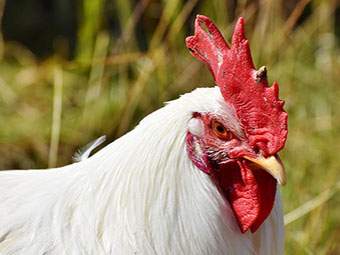Overexploited Animals For Human Consumption
Breaking Point: Can We Continue to Exploit Animals at This Rate?
Animal exploitation is a practice that consists of raising and slaughtering animals for human consumption. This practice has a negative impact on the well-being of animals, the environment and human health, and well detail the following, the animals most overexploited for human consumption are:
1-Chickens: Chickens are the most consumed birds in the
world. More than 70 billion chickens are killed for human consumption each year. Farm chickens usually live in very small cages, where they cannot move freely. They are fed a diet rich in antibiotics and hormones to accelerate their growth.
2-Pigs: Pigs are another widely consumed animal throughout the world. More than 1.5 billion pigs are killed for human consumption each year. Farmed pigs usually live in small spaces, where they cannot express their natural behaviors. They are castrated without anesthesia and subjected to mutilations, such as cutting off their tails and fangs.

Overexploited animals for human consumption
3-Cows: Cows are raised to produce milk and meat. More than 1.5 billion cows are killed for human consumption each year. Farm cows usually live in confinement throughout their lives. They are milked several times a day, and their young are separated from them at a young age.
4-Fish: Fish are a popular food throughout the world. Every year more than 1.3 billion fish are caught for human consumption. Industrial fishing is one of the main causes of ocean pollution. According to data from the World Health Organization, the overexploitation of animals for consumption is impacting the following areas:
Impact on animal welfare.
Animals raised for human consumption suffer from stress, pain and disease. They live in overcrowded and stressful conditions, and are subjected to cruel and painful practices, such as tail and fang cutting, castration without anesthesia, and slaughter.
Breaking Point: Can We Continue to Exploit Animals at This Rate?
Environmental impact. The production of meat, milk and eggs contributes to climate change, water pollution and deforestation. Livestock farming is responsible for the emission of large quantities of greenhouse gases, which contribute to climate change. Additionally, meat and milk production requires a large amount of water, which contributes to water scarcity in some regions of the world. Meat production also contributes to deforestation, as land is needed to grow animal feed and build farms.
Impact on human health. Red meat consumption has been linked to an increased risk of heart disease, cancer and diabetes. Additionally, meat from animals raised on factory farms may contain antibiotics and hormones, which can have negative effects on human health.
Ethical and sustainable alternatives. There are ethical and sustainable alternatives to animal exploitation, such as vegetarianism and veganism. These diets are healthy and respectful of animals and the environment.
In concuslion animal exploitation is a practice that has a negative impact on animal welfare, the environment and human health. It is important to be aware of this problem and opt for ethical and sustainable alternatives; the ethical diet could be a good start.

Throughout the history of humanity, it is known that chickens, pigs and cattle have been the most manageable and domesticable animals throughout the millennia, therefore, man takes advantage of their consumption.
See Also
Discovery Chepe
Most read...















